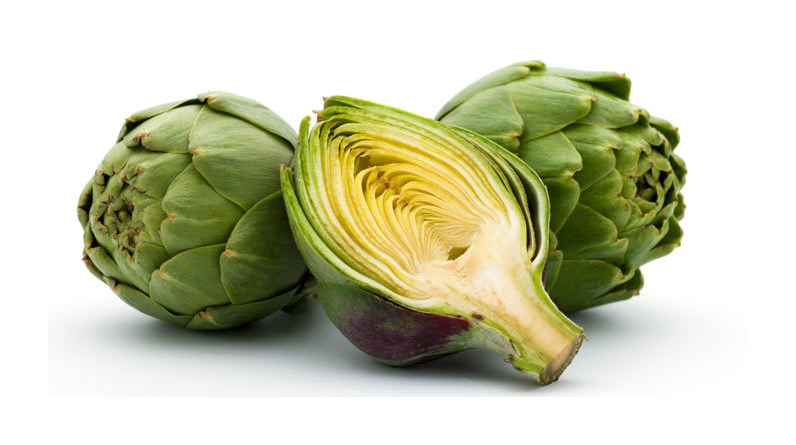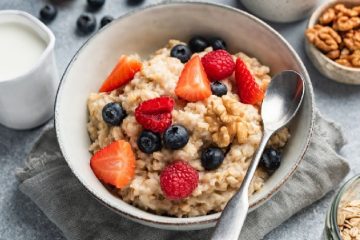Artichokes Have These 5 Health Benefits

Low-Sugar, High-Fiber Foods
The USDA reports that a medium-sized artichoke contains nearly seven grammes of fibre, which is equivalent to about one-third of the daily value.
Getting your daily dose of fibre is essential for maintaining a healthy weight and regular bowel movements. Fiber’s role in controlling blood sugar and insulin levels is particularly significant for diabetics, as reported by the National Library of Medicine’s online information resource MedlinePlus. It improves the health of the bacteria in your digestive tract, which in turn improves your immunity, mood, and reduces inflammation.
Antioxidants and nutrients in abundance.
The United States Department of Agriculture reports that one medium-sized artichoke contains roughly 10% of the daily recommended values for vitamin C, magnesium, manganese, and potassium, and nearly 20% of the average daily values for folate and vitamin K.
- Low levels of folate have been linked to increased vulnerability to depression and memory loss.
- According to MedlinePlus, vitamin K is essential for healthy blood clotting and also plays a role in bone development. If you don’t get enough vitamin K, you might break more bones.
- Vitamin C, an anti-aging antioxidant vital for immune system function and collagen production, is recommended by the National Institutes of Health.
- Magnesium helps with sleep quality, combats depression, and improves cognitive function. Strength, oxygen uptake, energy production, and electrolyte balance are all positively affected by a diet high in magnesium.
- Manganese, like vitamins C and K, helps the body make collagen, which is essential for healthy bones.
- Potassium is essential for healthy muscle contractions, heart function, and blood pressure.
- Also, artichokes provide your body with a wealth of antioxidants, which prevent cell damage and premature ageing. They protect cells and aid in the healing process following physical exertion.
Control Device for Blood Pressure
In a 2021 study published in Complementary Therapies in Medicine, researchers found that people with high blood pressure whose diet included artichokes experienced a significant reduction in blood pressure after 12 weeks.
High blood pressure, also known as hypertension, is associated with an increased risk of heart attack and stroke, two of the leading causes of death in the United States.
Supporter of Liver Function
According to MedlinePlus, NAFLD is the most prevalent chronic liver disease in the United States. NAFLD can be avoided with the help of a healthy diet, proper weight management, and regular physical activity.
Artichoke leaf extract, which is a concentrated form of substances found in artichokes and is typically sold as a powder or tablet, may also be important. One hundred people with NAFLD participated in a trial published in 2018 in the journal Phytotherapy Research.
During the study period, subjects were randomly assigned to receive either 600 milligrammes of artichoke leaf extract per day or a placebo. People who were given artichoke leaf extract saw improvements in liver size and blood markers, compared to those who were given placebos. Triglyceride and total cholesterol levels were lowered, and LDL cholesterol (the “bad” cholesterol) was lowered as well by the extract.
Protection from Harmful Bacteria: Prebiotic Food
Globe artichokes are the ones you’ll likely see in the produce section of the supermarket. Jerusalem artichokes, on the other hand, are a different kind of artichoke altogether.
Jerusalem artichokes, in contrast to their globe artichoke counterparts, do not have green skin and toothy leaves. In contrast to what one might expect, these vegetables do not resemble globe artichokes at all. Related to sunflowers, sunchokes go by several different names. These tubers, which resemble a combination of white potatoes and ginger root, are delicious both raw and cooked. A rich supply of prebiotic fibre and inulin can be found in these foods.
Calcium and magnesium are two of the minerals inulin aids in the absorption of, and it also aids in the synthesis of the B vitamins. Researchers found that inulin reduced the risk of developing breast and colorectal cancers, among others, in a study published in Biotechnology Reports in 2014.
See Also: Workers are increasingly taking legal action, and lawyers are seeing an increase in cases every …
Additionally, prebiotics provide fuel for the good bacteria in the gut, which in turn improves digestion, immunity, and mental state. However, this is not an excuse to leave the globe artichokes on the grocery store shelves the next time you’re out. Their inulin content is similar to that of similar foods. However, Jerusalem artichokes have a higher inulin content than others.
Leave a reply
You must be logged in to post a comment.










